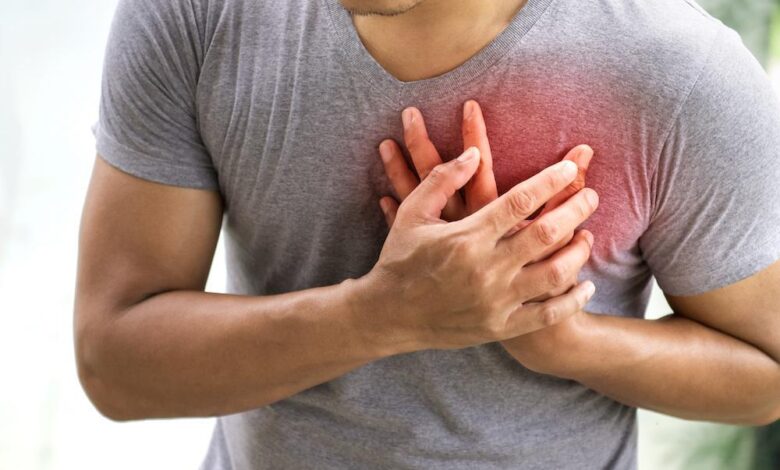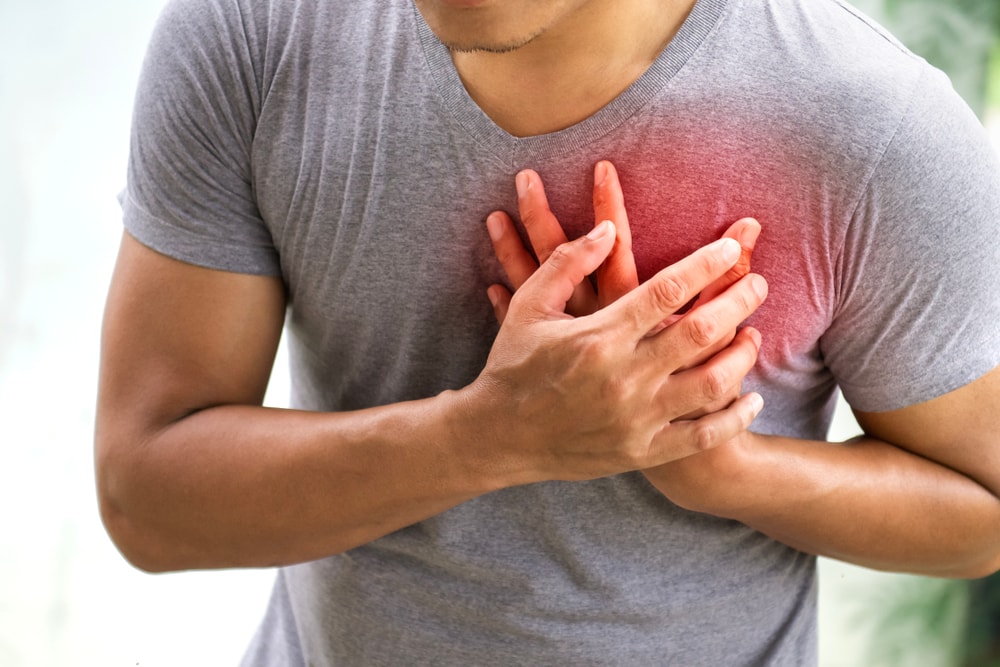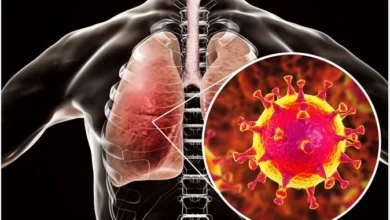10 Key Signs of Heart Attack in Men

While many assume that a heart attack comes out of nowhere, there are often numerous warning signs that can alert you before a full-blown attack occurs. Understanding these signs can dramatically increase survival rates and reduce the risk of severe heart damage. In this article, we explore the 10 crucial signs of heart attack in men, providing vital information to help recognize these symptoms early.
1.Chest Discomfort

Chest discomfort is a key sign of a heart attack in men. This discomfort can feel like an unbearable pressure, squeezing, or pain in the center of the chest. This sensation often lasts more than a few minutes or may disappear and return. If this type of chest pain is experienced, it’s crucial to not dismiss it and seek emergency medical care immediately as this is the body signaling a possible heart attack.
2.Feeling Weak, Light-headed, or Faint

Feeling unusually weak, light-headed, or faint can signal an impending heart attack. These symptoms might occur independently or alongside other symptoms such as chest pain. It is important to understand that if these feelings are combined with any other signs, the risk of a heart attack could be higher, and seeking medical advice promptly is crucial.
3.Pain in Other Parts of the Body
For some men, the pain will not be limited to the chest. It is common to feel pain in one or both arms, the back, neck, jaw, or even the stomach. The pain can vary greatly – it might be intermittent or constant, dull or sharp. Educating oneself about these less typical manifestations of heart pain is essential for recognizing a heart attack.
4.Shortness of Breath

Another significant warning sign is sudden shortness of breath, which can occur without any chest discomfort. It can feel like you can’t catch your breath or you are being winded. This symptom can be particularly alarming when it occurs without any exertion. It’s an urgent sign that your heart might be struggling.
5.Cold Sweat

Breaking out in a cold sweat for no apparent reason can also be a sign of a heart attack. This symptom often occurs in conjunction with other symptoms. It is usually a result of your body’s response to stress. Recognizing this as a potential sign of a heart attack can be critical for getting timely help.
6.Nausea or Vomiting

Nausea or sudden vomiting that seems unrelated to illness might indicate a heart attack. This can be especially surprising if you feel nauseous without having eaten something that could upset your stomach. Listening to these subtle signs and seeking immediate medical evaluation can provide crucial care in the nick of time.
7.Unusual Fatigue

Unexplained severe fatigue or exhaustion can be a precursor to a heart attack. Men might feel tired despite having not engaged in physical activity or exertion that justifies such fatigue. This type of exhaustion can occur days before a heart attack. Recognizing this as an abnormal state is important for early detection and medical intervention.
8.Anxiety or Irritability

Experiencing sudden episodes of anxiety or irritability could be related to heart health. These emotional symptoms can precede other more commonly recognized symptoms of a heart attack. They are often dismissed as stress or nervousness but could indicate underlying cardiovascular issues that need immediate attention.
9.Snoring or Sleep Apnea

Loud snoring or experiencing sleep apnea can be signs of increased heart health risks. Sleep apnea puts strain on the heart, which may lead to a heart attack over time. Men with these conditions should monitor their cardiovascular health regularly and discuss potential risks with their healthcare provider.
10.Persistent Cough or Wheezing

A persistent cough or wheezing that doesn’t go away can be related to heart failure, a condition that may result from or lead to a heart attack. If coughing produces white or pink mucus, this could indicate heart failure. Seeing a doctor for persistent respiratory symptoms is advised as they could be signs of critical heart conditions.
Conclusion:
Recognizing these ten signs can significantly improve the chances of early detection of a heart attack. Immediate action can often be the difference between life and death or permanent heart damage. Never ignore potential heart attack symptoms; always seek professional medical assistance.
If you have any queries related to medical health, consult Subhash Goyal or his team members on this given no +91 99150 72372, +91 99150 99575, +918283060000



